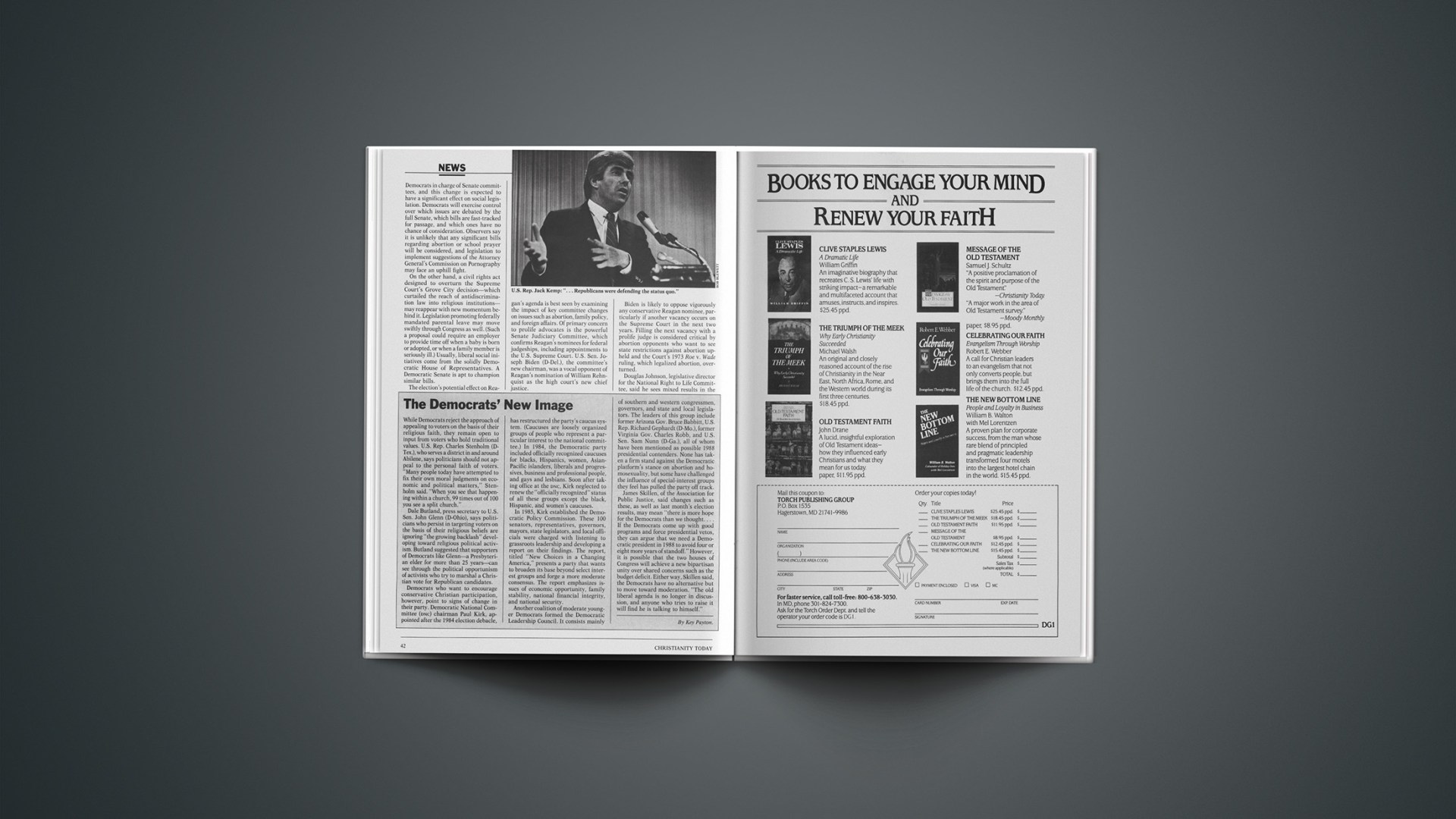While Democrats reject the approach of appealing to voters on the basis of their religious faith, they remain open to input from voters who hold traditional values. U.S. Rep. Charles Stenholm (D-Tex.), who serves a district in and around Abilene, says politicians should not appeal to the personal faith of voters. “Many people today have attempted to fix their own moral judgments on economic and political matters,” Stenholm said. “When you see that happening within a church, 99 times out of 100 you see a split church.”
Dale Butland, press secretary to U.S. Sen. John Glenn (D-Ohio), says politicians who persist in targeting voters on the basis of their religious beliefs are ignoring “the growing backlash” developing toward religious political activism. Butland suggested that supporters of Democrats like Glenn—a Presbyterian elder for more than 25 years—can see through the political opportunism of activists who try to marshal a Christian vote for Republican candidates.
Democrats who want to encourage conservative Christian participation, however, point to signs of change in their party. Democratic National Committee (DNC) chairman Paul Kirk, appointed after the 1984 election debacle, has restructured the party’s caucus system. (Caucuses are loosely organized groups of people who represent a particular interest to the national committee.) In 1984, the Democratic party included officially recognized caucuses for blacks, Hispanics, women, Asian-Pacific islanders, liberals and progressives, business and professional people, and gays and lesbians. Soon after taking office at the DNC, Kirk neglected to renew the “officially recognized” status of all these groups except the black, Hispanic, and women’s caucuses.
In 1985, Kirk established the Democratic Policy Commission. These 100 senators, representatives, governors, mayors, state legislators, and local officials were charged with listening to grassroots leadership and developing a report on their findings. The report, titled “New Choices in a Changing America,” presents a party that wants to broaden its base beyond select interest groups and forge a more moderate consensus. The report emphasizes issues of economic opportunity, family stability, national financial integrity, and national security.
Another coalition of moderate younger Democrats formed the Democratic Leadership Council. It consists mainly of southern and western congressmen, governors, and state and local legislators. The leaders of this group include former Arizona Gov. Bruce Babbitt, U.S. Rep. Richard Gephardt (D-Mo.), former Virginia Gov. Charles Robb, and U.S. Sen. Sam Nunn (D-Ga.), all of whom have been mentioned as possible 1988 presidential contenders. None has taken a firm stand against the Democratic platform’s stance on abortion and homosexuality, but some have challenged the influence of special-interest groups they feel has pulled the party off track.
James Skillen, of the Association for Public Justice, said changes such as these, as well as last month’s election results, may mean “there is more hope for the Democrats than we thought.… If the Democrats come up with good programs and force presidential vetos, they can argue that we need a Democratic president in 1988 to avoid four or eight more years of standoff.” However, it is possible that the two houses of Congress will achieve a new bipartisan unity over shared concerns such as the budget deficit. Either way, Skillen said, the Democrats have no alternative but to move toward moderation. “The old liberal agenda is no longer in discussion, and anyone who tries to raise it will find he is talking to himself.”
By Key Payton.










